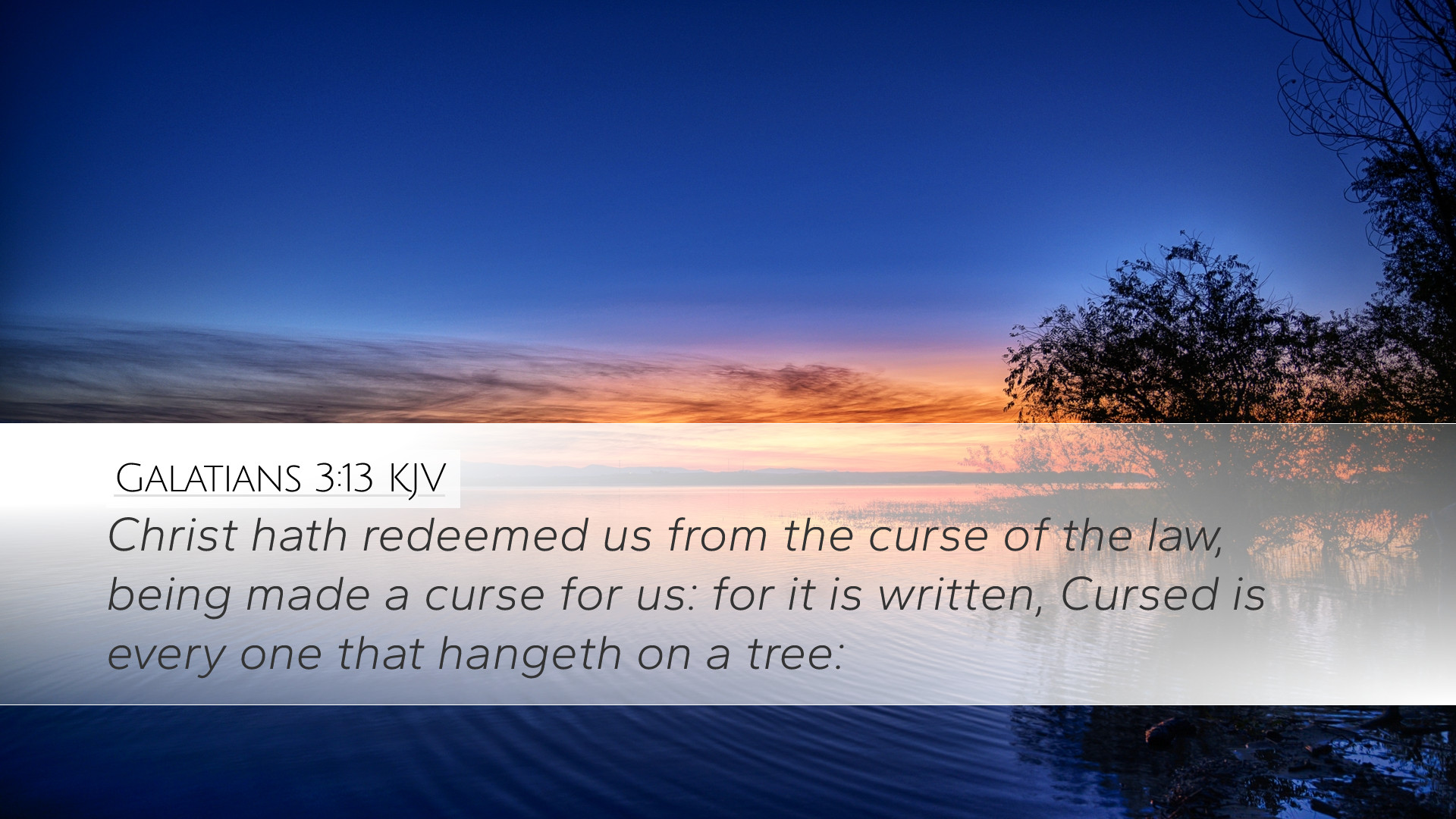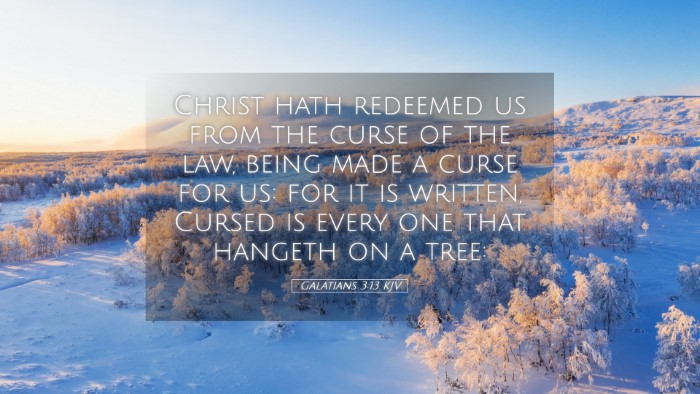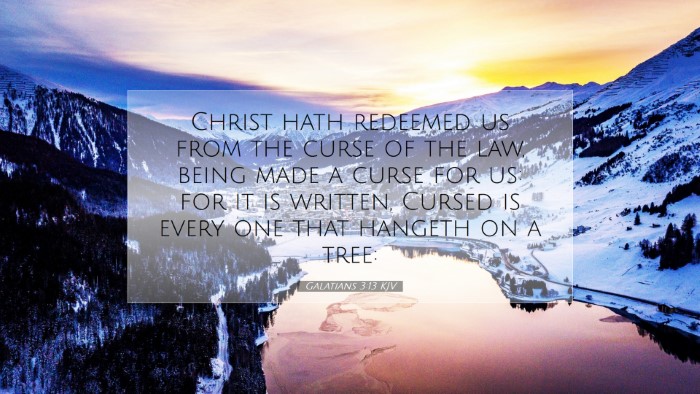Galatians 3:13 - Commentary
Verse: "Christ has redeemed us from the curse of the law, having become a curse for us (for it is written, 'Cursed is everyone who hangs on a tree')." (Galatians 3:13, NKJV)
Introduction
This verse sits at a crucial juncture in the epistle of Galatians, addressing the redemptive work of Christ in the context of the Law. Here, Paul emphasizes the significant theological transition from the law to grace, highlighting the profound implications of Christ’s sacrificial act.
1. The Nature of Redemption
Matthew Henry: Henry begins with the understanding of "redemption" as an act of liberation. He notes that the phrase "Christ has redeemed us" signifies a freedom from bondage—specifically, the bondage of sin and the curse that accompanies it. This concept is grounded in the idea of paying a price for freedom, which Christ achieved through His suffering and death.
Albert Barnes: Barnes elaborates further by asserting that redemption here pertains not only to freedom from sin but also from the curse pronounced by the Law. He asserts that Christ took upon Himself the burden that the law imposed upon humanity, thereby offering them a means of escape from its condemnation.
2. The Curse of the Law
Adam Clarke: Clarke dives into the idea of the "curse of the law," stressing that the law, while holy and just, also pronounced curses on those who could not uphold it perfectly. He points out that the law reveals sin but does not possess the power to redeem from it. The curse is rooted in disobedience, which is contrasted with the grace brought by Christ.
Matthew Henry: Henry describes the law as both a schoolmaster and a curse, shaping the moral standards but exposing human frailty. This underscores the dual aspect of the Law—it highlights sin while revealing the need for a Savior who can fulfill its demands.
3. Christ as a Curse
Albert Barnes: Barnes draws attention to the phrase “having become a curse for us.” This intriguing notion indicates that Christ did not merely endure the consequences of sin; He intentionally took on the status of being cursed for mankind. This act signifies a monumental exchange—Jesus, the sinless one, absorbing the curse meant for sinners.
Adam Clarke: Clarke emphasizes the Old Testament context by referencing Deuteronomy 21:23, which states that anyone hanged on a tree is cursed by God. He articulates that this act of crucifixion was not only a physical punishment but also a spiritual one, positioning Jesus in the realm of divine condemnation, thereby extending His grace to all of humanity.
4. Old Testament Foundations
Matthew Henry: Drawing upon the scriptural roots, Henry correlates this verse to the prophetic foreshadowing in the Old Testament. He suggests that the Law was not only a set of rules but a preparation for the coming of Christ, who would ultimately fulfill its requirements and absolve the faithful of its penalties.
Albert Barnes: Barnes further investigates the quotation from Deuteronomy, reinforcing that the Jewish understanding of being hanged on a tree as being under God’s curse added a layer of significance. This contextual background aids in the understanding of Paul’s assertion—Christ’s crucifixion was purposeful and redemptive.
5. Theological Implications
Matthew Henry: Henry discusses the radical nature of this salvation, where grace supersedes legalism. He stresses that this verse encapsulates the essence of the Gospel, presenting Christ as the ultimate resolution to humanity’s sin problem, thus providing joy, hope, and freedom from condemnation.
Adam Clarke: Clarke reflects on the implications for believers, illustrating that understanding this redemption leads to a newfound life of grace, wholly dependent on Christ's completed work. He stresses that this righteous exchange invites believers to live in the freedom of Christ, rather than in fear of the Law.
6. Practical Applications
- Understanding Grace: This verse can inspire deeper contemplation on the nature of grace in the life of a believer.
- Dependency on Christ: It emphasizes the importance of relying on Christ’s merit rather than personal efforts to adhere to the law.
- Encouragement in Suffering: Recognizing Christ’s suffering as a transformative act can comfort believers in their own trials.
- Preaching the Gospel: This verse serves as a powerful tool for evangelism, highlighting God’s love and sacrifice for humanity.
Conclusion
Galatians 3:13 encapsulates a profound theological truth—the redemptive suffering of Christ and the liberation from the curse of the law it affords believers. Drawing insights from esteemed public domain commentaries enhances our understanding of this pivotal verse in the Pauline epistles. As pastors, theologians, and students of the Word, engaging with these truths can enrich teaching, preaching, and personal spiritual growth.


